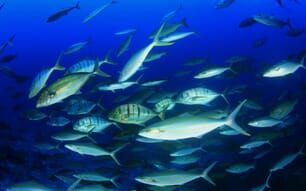Discarding, the practice of returning unwanted fish back into the sea, is banned by the new Common Fisheries Policy (CFP) which stipulates that fishermen will instead have to land everything that they catch. The five discard plans now adopted contain some practical rules, as well as a limited number of exemptions, to help fishermen implement the new rules.
The plans, which cover all pelagic fisheries in EU waters and fisheries in the Baltic, were put together by Member States who developed joint recommendations regionally in the Baltic, North Sea, North Western Waters, South Western Waters, and the Mediterranean.
Input was also received from local industry and stakeholders through Advisory Councils which under the new CFP have a right of consultation when EU countries decide the rules for fishermen in that region. The Commission reviewed the joint recommendations against the objectives and requirements of the CFP before adopting the plans.
In order to support fishermen during the challenging period when the landing obligation enters into force, the discard plans introduce some limited exemptions in certain cases where unwanted fish have a high chance of survival if returned to sea, where increases in selectivity are impossible to achieve, or where fishermen would incur disproportionate costs when handling unwanted catches.
These exemptions have been assessed by the scientific advisory body of the Commission, the STECF, to ensure that they meet the CFP's high sustainability standards. All fish released back into the sea under the allowed exemptions must still be reported and accounted for in order to ensure full transparency and data for scientific advice.
Support to adapt to the new rules will also be available from the EU's Maritime and Fisheries Fund (EMFF), with financial help for more selective fishing gears and techniques; or investments in equipment on board and port facilities necessary to use unwanted catches.
There were no joint recommendations for the Black Sea pelagic fisheries. Based on the information available to the Commission, there would be no need at this stage for any detailed rules to facilitate the introduction of the landing obligation in the Black Sea.
Next steps
The discard plans will enter into force on 1 January 2015, after a two-month scrutiny period by the Parliament and the Council. This marks the first phase of the landing obligation which will be introduced gradually between 2015 and 2019 for all commercial fisheries.
Following this first step, the landing obligation will apply to the main target species of demersals in the North Sea and Western Waters on 1 January 2016, and to the main target species of demersals in the Mediterranean, Black Sea and all other fisheries by 1 January 2017.
The landing obligation for all other species will apply by 1 January 2019 at the latest. Work has already started regionally to prepare for the second step of the implementation of the landing obligation on 1 January 2016.
To view the discard plans please click here.


